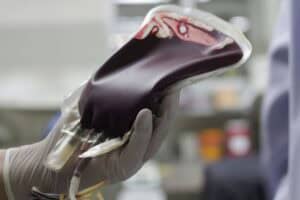Did you know that disposing of expired medication by flushing it down the toilet is against regulations? Apart from putting your family at risk, it may also have other negative effects.

Most people are unaware of the Medicines and Related Substances Act (101 of 1965) and how it applies to them when it comes to medicinal waste.
We often tend to discard of most things (including medicinal waste, batteries and other items) by just throwing it in the dustbin. But, apart from needing to live more responsibly in terms of the environment, we also need to keep our families safe.
Chucking half-used, expired medication in our general waste or flushing it down the toilet has negative effects on both the environment and human health.
Many would consider flushing old medication down the drain or the toilet as the best practice. However, according to Justice Tootla, the MD of waste management company Averda, these medications will end up in our water system, where it can be harmful to the environment, plants, animals and even humans as molecules inevitably find their way back into our food chain.
“According to the Medicines and Substance Act, the disposal of any medicines down municipal sewers is against regulations.”

The disposal of medicinal waste among general household waste is cause for concern as it eventually ends up on landfills, where waste pickers and drug addicts scour the area for left-over medication containing cortisone, or needles. This fuels their addiction and risks their health.
Tootla says: “The second problem is the danger it presents to our environment. When biological materials start to decay, they release methane gas into the atmosphere”, which is much more damaging to the environment than carbon dioxide.
Expired medication not dealt with carefully can also have fatal effects when you have small children at home. According to the Red Cross Children’s Hospital, about 40% of calls to the Poisons Information Centre are connected to children under the age of five having ingested harmful medicines.
ALSO READ: Should your child get the Covid-19 vaccine?
What is the best practice when it comes to at-home medication storage then? The Red Cross Children’s Hospital suggests the following:
- All medication should be in a lockable cupboard or out of reach and sight for children. Small children are naturally curious and will find ways to gain access to all kids of cupboards.
- Get child-resistant containers, but keep in mind that with time and persistence, children will still be able to open these containers. They may be child-resistant, but they’re not child-proof.
- This also applies to medicines placed in your handbag or on your nightstand.
- There are certain products that you might not consider dangerous to children, like health products, vitamins and eye drops. But, they can be harmful and need to be stored safely too.
This video is no longer available.
How should you dispose of expired medicines?
According to Tootla, the public, especially people who have chronic diseases, can purchase the correct medicinal waste containers from reputable suppliers like Averda and use it to dispose of expired medicines or used needles.
These containers must be kept in a safe storage place and once filled, they should be taken to a local pharmacy or to a certified medical waste facility that will incinerate the waste according to the outlined regulations. After the disposal is complete, you should, by regulation, receive a safe destruction certificate, offering consumers peace of mind that it’s been disposed of correctly and ultimately offering landfills some relief.
What happens to this medical waste?
If the leftover medication falls under schedule one to four meds (like most over-the-counter medication) they will immediately be incinerated on site.
Schedule five and six medicines will require and external inspector from a government body like the South African Police Service (Saps) and a registered pharmacist to be present during the incineration.
Once the procedure is complete, the pharmacist will sign it off with their registration code from the South African Pharmacy Council (SAPC). This same procedure is undertaken with schedules seven and eight medicines, but in this case two pharmacists need to be present.
Tootla says: “As South African citizens it’s out responsibility to protect and take care of our environment and remember that all our precious ecosystems are deeply connected.”
This video is no longer available.
Support Local Journalism
Add The Citizen as a Preferred Source on Google and follow us on Google News to see more of our trusted reporting in Google News and Top Stories.






